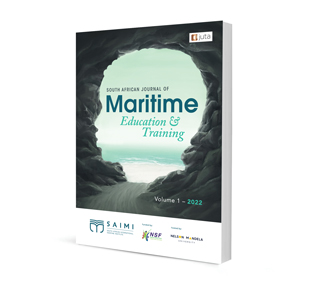Forward Thinking for Leading Excellence in Maritime Education and Training

Forward Thinking for Leading Excellence in Maritime Education and Training
Author Momoko Kitada
ISSN: 2790-783X
Affiliations: World Maritime University
Source: South African Journal of Maritime Education and Training, Volume 1 Issue 1, p. 71-78
https://doi.org/10.47348/SAJMET/2022/i1a8
Abstract
In the wake of the fourth industrial revolution (4IR), maritime labour and skills needed for the future maritime industry are in question. The role of maritime education and training (MET) has become even more important to equip young people with necessary skills and support the growth of maritime industries. Based on a review of the literature on the impact of 4IR on maritime jobs, this paper proposes a human-centred approach to design the future maritime industry with various stakeholders. While appreciating scenario-based planning to prepare for the future, the paper discusses how South African readiness to technology would potentially provide an opportunity for forward thinking for leading excellence in maritime education and training.

